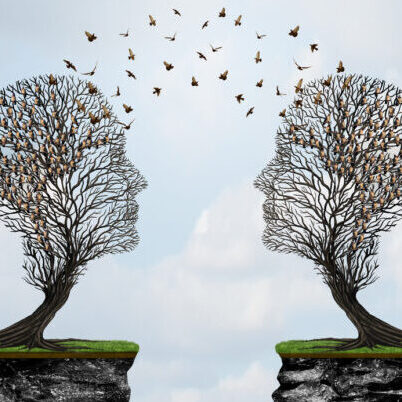
Bridges
If you have ever joined an OLOGY gathering, you know we build bridges. Connective bridges between people groups-be they professional, religious, racial, or cultural-serve as a kind of grease to the squeaky gears that make up our social machine. We affirm that the groups we come to naturally, or choose for ourselves, must to bond themselves that we might know who we are. But all too often those neighbors we do not choose for ourselves serve as a mere inconvenience either to be ignored or obliterated. Clergy and clinicians thumb their noses at one another. Religions burn one another’s places of peaceful worship. Races are massacred needlessly and unjustly. These days, we all bear witness to the horrors that result from the collapse of these bridges, when the presence of inconvenient neighbors only strengthens the centripetal forces of our in-groups and we leer at those outside with defensiveness and disdain.
The act of building bridges between these neighbors is part of the treacherous adventure that is integration. I paraphrase a Christian apologist of old when I write this: We choose our friends; we choose our enemies; but God chooses our neighbors. Hence they come to us clad in all the careless terrors of nature; they are strange as the stars. But we have to love our neighbors simply because they are there. They are the sample of humanity which has been given to us. And to do so is exciting because it is exacting; it is exacting because it is alive. Building bridges demands of us. It demands we learn, listen, and trust our own sure-footing enough to walk in the land of the other. We buttress the bridges with pillars of justice, empathy, and equitable dialogue.
The currency necessary to this integrative exchange is language, verbal and nonverbal alike. Our chosen tribes and creeds teach us to understand the world through spoken words and idioms, the subtleties of a glance or a face, ordered but easily overlooked expressions of the hands. We weave in-and-out of these easily when we communicate with our own. But when we cross the bridge to reach out, we must stumble together to learn how an other communicates and sees the world. The late psychoanalyst, Randall Sorenson liked to tell the story of the French and English workers first met beneath the English Channel in the 1990s, finally connecting their two simultaneous tunnels to form what became the famed Chunnel. From the other side, a French worker heard a Brit call out, “Bonjour! Vive la France!” The Frenchman replied playfully, “Hello! God Save the Queen!”
The socially oriented professions, like those in mental health and ministry, wield enormous leverage as cultural influencers; and with much power comes much responsibility. Division can begin in our offices, but so can integration. Drawing both on expertise in theologies and psychologies, we can refine neighborly communications, promote justice, and curtail violent division through active peacemaking.
